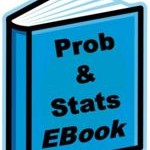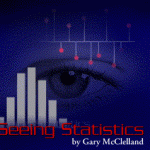Posted by Armando Brito Mendes | Filed under data sets

clique na imagem para seguir o link
Boa fonte de dados para trabalhos
O que é o Portal de Dados?
Gostaria de aceder facilmente aos dados da UE? Pretende reutilizar os dados para, por exemplo, realizar um trabalho de investigação, redigir um artigo ou desenvolver uma aplicação ?
Então está no sítio certo. O Portal de Dados Abertos da UE serve de ponto de acesso único a um número crescente de dados produzidos pelas instituições e outros organismos da União Europeia.
Pode utilizar e reutilizar os dados, criar ligações para os mesmos ou redistribuí los para fins comerciais e não comerciais.
Tags: análise de dados, open data
Read more |
|
June 9th, 2016
Posted by Armando Brito Mendes | Filed under estatística

clique na imagem para seguir o link
Exemplo de aplicação de técnicas de análise de dados a problemas de medicina
MD Anderson is sitting on 23 petabytes of data, including more than 2 billion diagnostic radiology images, generated by its massive IT infrastructure. But Chris Belmont, vice president and CIO, isn’t intimidated by the amount of data—he’s just scared of staring at it too long.
“Our biggest fear when we decided to move into Big Data was that, like many healthcare organizations, we’d have a two-year data ‘ingestion’ process where we’d keep thinking about that massive set of data, and connect all our systems big and small together, go get even more data from external sources, and then eventually offer our users an add-on tool and tell them to go at it,” Belmont says. “By the time we’d be done ingesting all that data, the time to change the game in terms of costs or population health would have already passed.”
Tags: análise de dados, big data, data mining, decisão médica
Read more |
|
June 3rd, 2016
Posted by Armando Brito Mendes | Filed under lições, materiais ensino, materiais para profissionais, videos

Muito bons podcasts tem temas introdutórios
We present the top 12 Data Science & Machine Learning related Podcasts by popularity on iTunes. Check out latest episodes to stay up-to-date & become a part of the data conversations!
By Bhavya Geethika Peddibhotla.
Learn Data science the new way by listening to these compelling story tellers, interviewers, educators and experts in the field. Data suggests that podcasting about Data Science is only growing!
Tags: análise de dados, big data, data mining, desnvolvimento de software, Estat Descritiva, machine learning
Read more |
|
January 20th, 2016
Posted by Armando Brito Mendes | Filed under estatística, materiais para profissionais, software

Bons recursos sobre SPSS e ligação com R e Pyton
Raynald’s SPSS Tools
The collection of syntaxes, macros, scripts and hints for better solutions of data management and data analysis problems in IBM SPSS Statistics
Tags: análise de dados, decisão médica, Estat Descritiva, IBM SPSS Statistics, R-software, software estatístico
Read more |
|
January 19th, 2016
Posted by Armando Brito Mendes | Filed under estatística, lições, materiais ensino, videos

clique na imagem para seguir o link
Montes de vídeos sobre todos os temas abordados em P&E
Video and Multimedia
Click on the following links. Please note these will open in a new window.
Descriptive Versus Inferential Statistics
https://www.youtube.com/watch?v=edEXEyvG4Wk
Illustrates the differential purposes served by descriptive and inferential techniques in conducting statistical analyses.
https://www.youtube.com/watch?v=L6hy1CY-OW4
Practical examples of descriptive and inferential statistics
https://www.youtube.com/watch?v=be9e-Q-jC-0
Simple Random Sampling, Convenience Sampling, Systematic Sampling, Cluster Sampling, Stratified Sampling
Types of Variables
https://www.youtube.com/watch?v=hZxnzfnt5v8
Describes the concepts of; a) unit of observation and b) variables and consequently the differences amongst the three major levels of measurement of variables, nominal, ordinal and interval/ratio.
Tags: análise de dados, Estat Descritiva
Read more |
|
January 5th, 2016
Posted by Armando Brito Mendes | Filed under estatística, materiais ensino, materiais para profissionais

Um webBook pensado para investigadores sobre temas de estatística
What is the Research Methods Knowledge Base?
The Research Methods Knowledge Base is a comprehensive web-based textbook that addresses all of the topics in a typical introductory undergraduate or graduate course in social research methods. It covers the entire research process including: formulating research questions; sampling (probability and nonprobability); measurement (surveys, scaling, qualitative, unobtrusive); research design (experimental and quasi-experimental); data analysis; and, writing the research paper. It also addresses the major theoretical and philosophical underpinnings of research including: the idea of validity in research; reliability of measures; and ethics. The Knowledge Base was designed to be different from the many typical commercially-available research methods texts. It uses an informal, conversational style to engage both the newcomer and the more experienced student of research. It is a fully hyperlinked text that can be integrated easily into an existing course structure or used as a sourcebook for the experienced researcher who simply wants to browse.
Tags: análise de dados, b-learning, Estat Descritiva, inferência
Read more |
|
January 3rd, 2016
Posted by Armando Brito Mendes | Filed under estatística, lições, materiais ensino

Um webBook com montes de temas bem explicados
Mar 2013. Coming very soon: a slideshow and Excel workbook for an introductory course of 10 lectures on statistics. Aug 2011. Check out the following 2010 articles at Sportscience: assigning subjects to treatments in a controlled trial; regression vs limits of agreement in measure-comparison studies; magnitudes of effects derived from linear models. See the frame at right for links to much more, including the progressive statistics and research design articles. Previous updates…
New original approaches to statistics for researchers: the examples are taken from exercise and sport science, but the principles apply to all empirical sciences. Read more in the preface.
Feedback wanted: if you can’t understand something here, it’s my fault. Email me.
Become a license holder…eventually! Not yet. More…
Full Contents
Short Contents:
Preface: About These Pages
Summarizing Data
Simple Statistics & Effect Statistics
Dimension Reduction
Precision of Measurement
Generalizing to a Population
Confidence Limits & Statistical Significance
Statistical Models
Estimating Sample Size
Summary: The Most Important Points
Quiz
Reference: Hopkins, W. G. (2000). A new view of statistics. Internet Society for Sport Science: http://www.sportsci.org/resource/stats/.
Tags: análise de dados, Estat Descritiva, inferência, previsão
Read more |
|
January 3rd, 2016
Posted by Armando Brito Mendes | Filed under estatística, lições, materiais ensino

clique na imagem para seguir o link
Mais um eBook com montes de links para outros recursos
RVLS Home | Glossary | Free Statistical Analysis Tools | Instructional Demos | Exercises and Problems | Statistics Help | Privacy policy
Contents
- Introduction to Statistics
- Describing Univariate Data
- Describing Bivariate Data
- Introduction to Probability (elementary)
- Normal Distribution
- Sampling Distributions
- Point Estimation
- Confidence Intervals
- The Logic of Hypothesis Testing
- Testing Hypotheses with Standard Errors
- Power
- Introduction to Between-Subjects ANOVA
- Factorial Between-Subjects ANOVA
- Within-Subjects/Repeated Measures ANOVA
- Prediction
- Chi Square
- Distribution-Free Tests
- Measuring Effect Size
© 1993-2013 David M. Lane
Tags: análise de dados, Estat Descritiva
Read more |
|
January 3rd, 2016
Posted by Armando Brito Mendes | Filed under estatística, lições, materiais ensino

Um bom ebook com boas animações
SOCR Books: This is a General Statistics Curriculum E-Book, which includes Advanced-Placement (AP) materials.
Contents
Tags: análise de dados, Estat Descritiva, inferência
Read more |
|
January 3rd, 2016
Posted by Armando Brito Mendes | Filed under estatística, lições, materiais ensino, visualização
 Uma excelente maneira de aprender estatística com um webBook dinâmico e muito visual
Uma excelente maneira de aprender estatística com um webBook dinâmico e muito visual
Seeing Statistics ® is a new approach to teaching statistics using the World Wide Web. This webbook is based on three premises:
- The important principles of statistics are remarkably easy if they can be seen.
- Active involvement of the student facilitates learning.
- Statistics can be fun!
Most of the graphs and figures in this textbook are dynamic and under the control of the reader. Interacting with the graphs allows you to see the important statistical principles in action.
Rather than talk about it, it is best to view Seeing Statistics in action. To access Seeing Statistics, click on the “Enter Seeing Statistics” button to begin your exploration of Seeing Statistics!
Table of Contents
0. Introduction

1. Data & Comparisons

2. Seeing Data

3. Describing the Center

4. Describing the Spread

5. Seeing Data, Again

6. Probability

7. Normal Distribution
7. Outline

7.0 Introduction

7.1 Origins of Normal

7.2 Size and Shape

7.3 Working with the Normal

7.4 Means have Normal Distributions

7.5 Evaluating Normality (optional)

7.6 Review

7.7 Exercises


8. Inference & Confidence

9. One-Sample Comparisons

10. Two-Sample Comparisons
Tags: análise de dados, Estat Descritiva, inferência
Read more |
|
January 3rd, 2016






